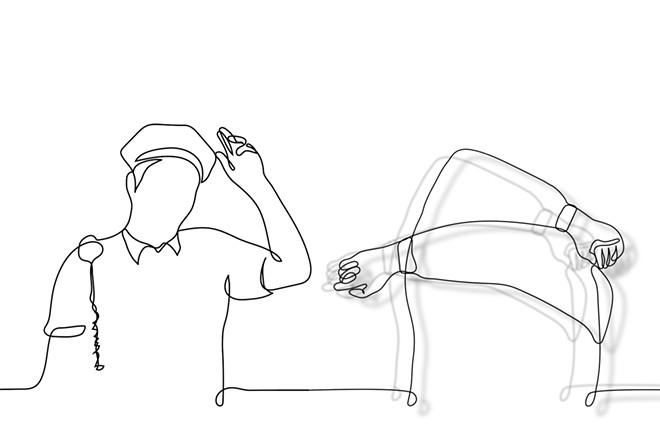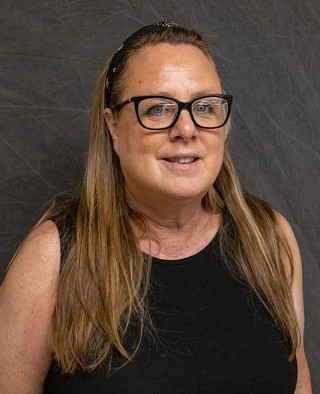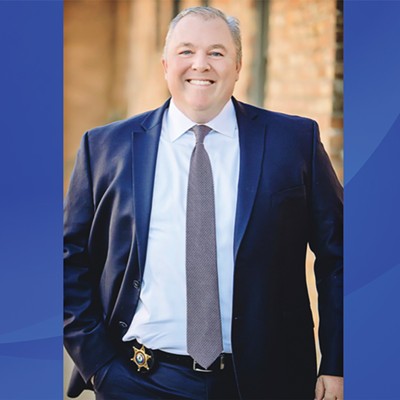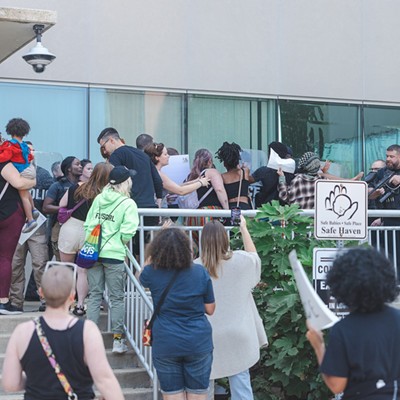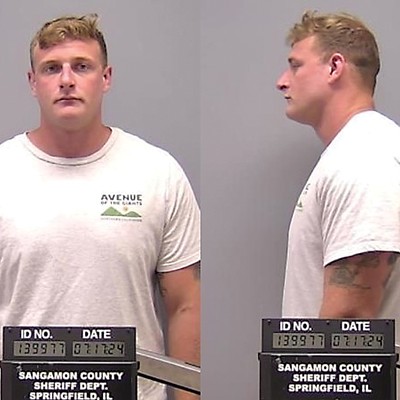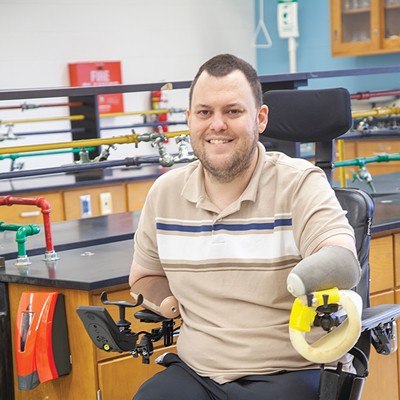An Illinois law intended to help people with mental illness avoid confrontations with police had been on the books for three years when Sonya Massey was shot by a Sangamon County Sheriff's deputy.
The Community Emergency Services and Supports Act, or CESSA, requires mental and behavioral health calls to 911 be handled by mental health professionals, rather than police. It was supposed to go into effect on July 1, 2022 – two years before Massey, who was having a mental health crisis, was shot by then-Sangamon County Sheriff's Deputy Sean Grayson.
"I think if this system were in place, and emergency responders were trained and aware of what is available to them, then I think Sonya Massey would still be with us today," said Candace Coleman, community strategy specialist with Access Living, a Chicago-based organization that advocates for disabled people.
The struggle over CESSA's execution has twice caused lawmakers to push back its effective date, but Sen. Robert Peters, D-Chicago, one of the bill's sponsors, said Massey's death underscores the need to carry out reform.
"I feel confident that we are going to get this done. The state and the advocates want to get this right," Peters said. "And Sonya Massey is the exactly the reason we need to get this done."
Administrative delays
Getting CESSA up and running has been complicated by the multiple agencies involved, according to Illinois Department of Human Services spokesperson Rachel Otwell. Those include local law enforcement, telecommunication services, community mental health providers, public and private emergency medical services, and the advocates who pushed for the reform.
In a written response to questions, Otwell said all these groups and organizations have different ideas about how the law should work and how their systems can best be coordinated, and each are governed by different laws, rules and regulations.
But Massey's case underscores the existence of ongoing failures when law enforcement responds to calls involving those experiencing a mental health crisis.
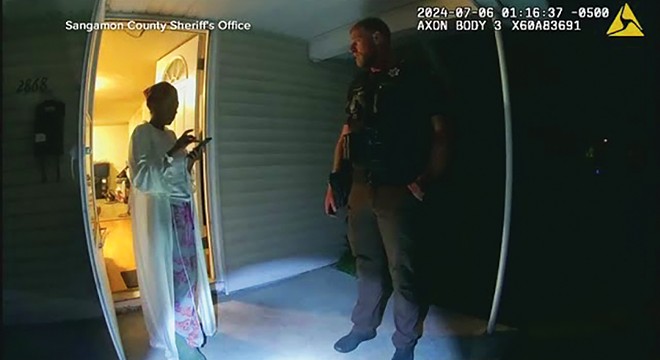
A 2022 study by the American Psychological Association put the number of police calls involving a person experiencing mental illness at around 20%, while the Illinois Criminal Justice Information Authority says it's between 7-10%.
In Illinois, police have killed 200 people since 2015, according to state police statistics. Of those, 31, or about 15%, involved a call about a person with mental illness. The victims ranged in age from 17 to 66.
During a recorded 911 call the day before a deputy shot her daughter, Donna Massey begged dispatchers to send help and not hurt her daughter. She told a dispatcher she wanted no "combative" officers.
Donna Massey told the dispatcher she was afraid of her daughter driving while in an erratic state, so she did what the counselors had told her to do and called the police.
"I don't want you guys to hurt her. Please," Donna Massey said during a two-minute 911 call made the morning of July 5.
Like Donna Massey, those with children coping with mental illness or neurodivergence are often forced to contemplate whether calling police is the best way to keep their loved one safe during a crisis. A study conducted at the John Jay School of Criminal Justice published in 2021 found that police are more than 10 times more likely to use force against a person experiencing mental illness than a person who is not.
"Yeah, we know that there are tools out there that could change the outcome," Coleman, of Access Living, said. "It's hard for people who know that they have a mental health condition to call for help because they fear for their lives. All that is at play; family members also fear for their loved ones' lives. So, this is not an easy topic at all, because people do die."
'Fastest assistance possible'
In the early morning hours of July 6, Sonya Massey called 911 to report a prowler outside her home, setting in motion the chain of events that left Massey dead and Grayson, the officer who shot her, facing charges of first-degree murder.
Dispatchers who sent deputies to Massey's home that night didn't relay that Massey was the subject of calls to them in previous days, including the one from her mother about her apparent mental breakdown. She told dispatchers that her daughter was thinking that people were out to get her, like "paranoid schizophrenic."
While it seems the deputies sent to answer her call should have been made aware of that, Sangamon County 911 Director Chris Mueller said in a written statement that this is easier to see in hindsight. Sonya Massey did not give her name when she called 911, he said, so in responding to what looked like an emergency, no one connected the earlier call from her mother.
"Researching each call history would take time," Mueller said in a written response. "The 9-1-1 system is predicated on providing the fastest assistance possible to the caller in need. Most would not wish delays when they call 9-1-1 to report a prowler."
When operational, CESSA is meant to help 911 dispatchers avoid call delays but to also identify calls involving mental health, even when a caller does not mention mental health.
The dispatcher protocols will change to help them assess calls and identify callers who are suicidal or in crisis and get them access to trained professionals for help, as well as determining the speed of the needed response, Otwell stated in a written response.
Those revised protocols are currently being tested.

Coleman said better training, destigmatizing mental illness and improving access to care for people experiencing mental illness are all much needed, especially downstate where there is a scarcity of resources. Providing not only intervention, but also the necessary care is an important part of getting help to those in crisis.
Those resources should include living room models, which is a house where people in crisis can be treated by trained professionals without an admission to a psychiatric hospital, Coleman said.
In Springfield, Memorial Behavioral Health, 710 N. Eighth St., offers a space for people who need crisis care. It has walk-in access on weekdays from 8 a.m.-4:30 p.m. and provides services that include crisis counseling, intake and short-term case management services. No appointments are needed, and those who walk in meet with "peer recovery specialists" who have lived through mental health crises of their own.
Illinois also provides a 988 number for people experiencing a mental health crisis. The eight call centers are staffed by 114 call takers with at least a bachelor's degree and additional special training. Last year, Illinois' 988 line received over 168,000 calls.
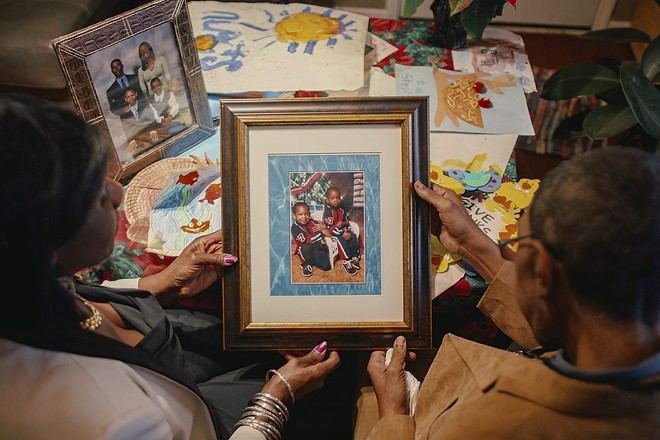
The genesis of CESSA was the 2012 shooting of a 15-year-old Calumet City student with Asperger's syndrome, a form of autism. Stephon Watts became so upset at the prospect of going to school that his father called the hospital, then – on the advice of a doctor and a social worker – the police.
Five officers arrived at the home. The teen, who was 5-feet, 7-inches tall and weighed 220 pounds, had a history of being physically combative with both his family and police. According to press accounts, he wielded a knife at officers, who fired at him, striking him twice and killing him.
The day after Christmas in 2015, 19-year-old Ruintonio LeGrier, who was exhibiting signs of mental illness, brandished a bat at officers who were called to his Chicago apartment building to handle a dispute between him and his father. Chicago police opened fire and hit him six times. The teen was killed. So was Bettie Jones, the downstairs neighbor who had let the officers in.
No one was criminally charged in the deaths, but the officer who fired the fatal shots sued the city for improper training. He later dropped his suit.
Crisis training
Since 2003, the Illinois Law Enforcement Training and Standards Board has offered a state-certified course in crisis intervention. The 40-hour course teaches less-than-lethal tactics to deal with people with developmental disabilities or mental illness.
According to its website, ILETSB has certified over 8,125 officers from 560 agencies. Grayson, the deputy who shot Massey, was one of them.
ILETSB's records showed Grayson received and passed the 40 hours of crisis intervention training from March 20 to 24, 2023 – not quite 16 months before he shot an unarmed Massey in her kitchen.
Grayson and the unidentified officer who responded to the call at Massey's home that night were looking for a prowler, but after repeated knocking at her door and shouting to answer, they instead found Massey in her pajamas. She was asking for help and looking frightened and confused while she distractedly scrolled on her phone.
In the body camera video of the call, her behavior prompted Grayson, who was standing on her front porch, to ask if she was all right mentally. She responded that she was taking her medicine.That, said Chet Epperson, a use-of-force expert and retired Rockford Police Chief with 33 years of experience, should have been enough to end the call.
"There were enough reasonable cues, signs of odd, different behavior from her. Given the training, an officer should be able to recognize those," Epperson said. "There doesn't need to be a response to heighten the tension."
ILETSB's crisis intervention training is meant to reduce use-of-force incidents, but typically goes against the grain of traditional police training.
"What we learn with police training and culture is control. We learn that the cop always has to be in charge – be the alpha," Epperson said. "But in mental health calls, it's different. An officer needs to relinquish control of the conversation. De-escalation is the goal. You want to be patient and give them the time but then (they) ultimately voluntarily comply."
In addition to training, experience, flexibility and an ability to relinquish control of conversations lead to the peaceful end of these crisis calls, Epperson said.
During that fatal July 6 incident, Grayson missed another opportunity to end the call, Epperson said, when they were standing on Massey's front porch. The woman thanked the deputies and said she loved them.
Instead of leaving, Grayson pressed her with questions. Inside the home, Epperson said he failed to de-escalate the situation, and he became frustrated on her insistence in showing him "some paperwork" and her inability to find identification.
At one point, Massey removed a pot of boiling liquid from the stove. The video showed the other deputy moving away and Massey said, "I rebuke you in the name of Jesus." In response, Grayson put his hand on his holstered gun and warned her that he would shoot her in the face.
Massey ducked behind a counter and said what would be her last words: "I'm sorry."
Grayson moved toward her, then fired three times. He said later in the video that he feared Massey would throw the boiling liquid on them.
As Massey lay bleeding to death on her kitchen floor, Grayson went outside, called back to the dispatchers and asked whether Massey was 10-96 – police code for a mental health case.
Later, when a fellow deputy asked if he was all right, he responded, "Yeah, I'm OK. This fucking bitch is crazy."
Capitol News Illinois is a nonprofit, nonpartisan news service covering state government. It is distributed to hundreds of newspapers, radio and TV stations statewide. It is funded primarily by the Illinois Press Foundation and the Robert R. McCormick Foundation, along with major contributions from the Illinois Broadcasters Foundation and Southern Illinois Editorial Association.

